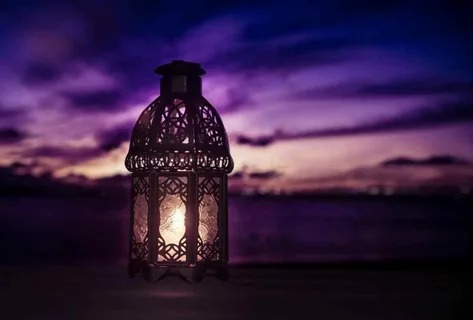Intriguing as it may sound, the question of whether are jinns locked up in Ramadan has been a topic of discussion and fascination among believers for generations. Ramadan, a sacred time for Muslims worldwide, is a period of fasting, prayer, reflection, and spiritual growth. But what role do jinns, supernatural beings in Islamic tradition, play during this significant month? In this article on Arabian Tongue website, we will delve into are jinns this mystical aspect of Ramadan, exploring the beliefs, stories, and myths surrounding jinns and their connection to this auspicious time.
Understanding Jinns: Who or What Are They?

Before we delve into the specific question of jinns in Ramadan, it’s essential to understand what jinns are. In Islamic theology, jinns are sentient beings created from smokeless fire, distinct from humans and angels. They possess free will and can choose to do good or evil, much like humans. With this basic understanding, let’s explore the beliefs associated with jinns during Ramadan.
The Belief in Jinns Being Locked Up
One common belief among Muslims is that jinns are indeed locked up during Ramadan. This belief is rooted in various Islamic traditions and folklore that have been passed down through generations. According to these accounts, Allah, in His infinite wisdom, commands the jinns to be restrained during this sacred month.
The Quranic Perspective
Although the Quran does not explicitly mention jinns being locked up during Ramadan, some scholars interpret certain verses as alluding to this phenomenon. For instance, Surah Al-Jinn (Chapter 72) discusses the encounter of jinns with the Quran and its guidance. While not directly addressing Ramadan, it highlights the power and significance of the Quran, suggesting that jinns may become less active during this holy month.
Read more: what are jinns scared of
Hadith References
Hadiths, the sayings and actions of the Prophet Muhammad (peace be upon him), provide further insight into this belief. Some hadiths suggest that jinns are indeed confined during Ramadan, allowing for a more peaceful and spiritually charged atmosphere for humans to worship.
The Purpose Behind Restraining Jinns
Now that we’ve explored the belief itself, let’s consider why jinns might be locked up during Ramadan. The primary purpose behind this notion is to create an environment conducive to worship and reflection. By restraining jinns, it is believed that distractions and temptations are reduced, allowing Muslims to focus more on their spiritual pursuits.
Recommend: can jinn marry humans
Minimizing Mischief
Jinns, like humans, can engage in mischief and temptations. Locking them up during Ramadan is thought to minimize their potential to influence people negatively during this sacred time. It is a way of safeguarding the faithful from spiritual distractions.
Facilitating Spiritual Growth
Moreover, the belief in locked-up jinns serves as a reminder of the exceptional nature of Ramadan. It is a month dedicated to spiritual growth, self-improvement, and drawing closer to Allah. The absence of potential negative influences is seen as a divine favor, aiding believers in their spiritual journey.
The Skeptical View
While the belief in locked-up jinns during Ramadan is widespread, it is essential to acknowledge that not all Muslims subscribe to this idea. Some consider it a superstition or a cultural belief rather than a religious doctrine. They argue that the Quran and authentic Hadiths do not provide explicit evidence for this phenomenon.
Learn Now: Quran Ijazah Course for Kids
FAQs
Do all Muslims believe that jinns are locked up during Ramadan?
Not all Muslims share this belief. While it is widespread, some consider it a cultural or superstitious belief rather than a religious doctrine.
Is there concrete evidence in Islamic scriptures about jinns being locked up in Ramadan?
The belief is based on interpretations of Quranic verses and Hadiths. While there are references that allude to it, there is no explicit evidence in Islamic scriptures.
What is the significance of Ramadan for Muslims, regardless of the belief in locked-up jinns?
Ramadan is a sacred month for Muslims, emphasizing fasting, prayer, self-reflection, and spiritual growth. It holds immense importance regardless of this specific belief.
Do jinns play a significant role in Islamic theology beyond Ramadan?
Yes, jinns are a part of Islamic theology and are believed to be sentient beings created by Allah. They are mentioned in various contexts in Islamic scriptures.
How can I make the most of Ramadan, irrespective of the belief in locked-up jinns?
Regardless of this belief, you can make the most of Ramadan by focusing on self-improvement, acts of charity, increased prayer, and drawing closer to Allah through worship and reflection.
Conclusion
In conclusion, the belief that jinns are locked up during Ramadan is a fascinating aspect of Islamic tradition. It underscores the significance of this holy month and its focus on spiritual devotion and growth. While it is a widely held belief with roots in Hadiths and folklore, it is not without its skeptics. Ultimately, whether one believes in locked-up jinns or not, Ramadan remains a special time for Muslims worldwide to deepen their faith and draw closer to Allah through fasting, prayer, and acts of kindness.


